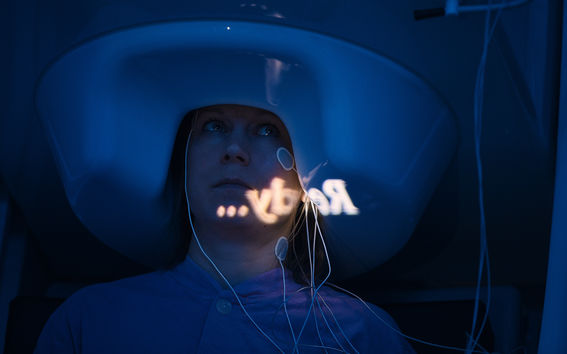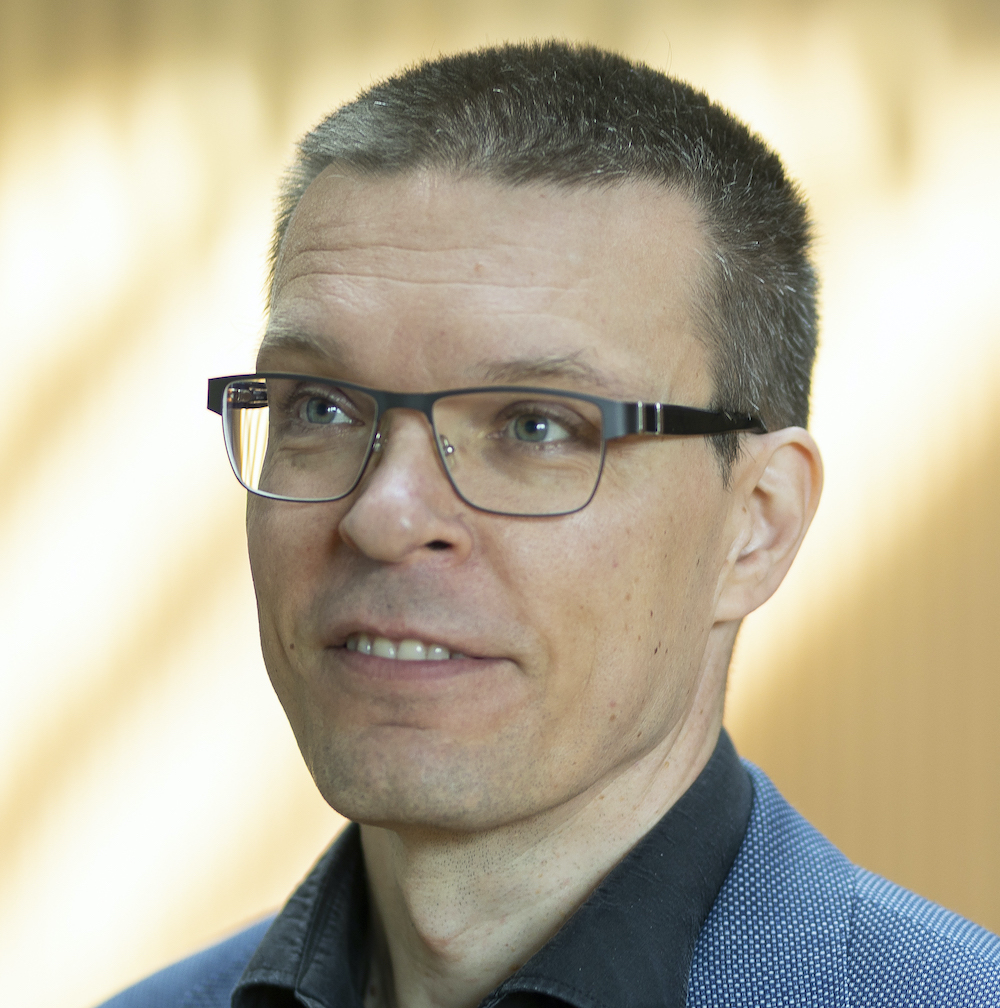Artificial intelligence for dementia prevention

AI-Mind will create intelligent digital tools for screening of brain connectivity and dementia risk estimation in people affected by mild cognitive impairment.During the project’s 5-year lifecycle, two new artificial intelligence-based digital tools will be developed. The AI-Mind Connector will identify dysfunctional brain networks, and the AI-Mind Predictor will assess individual dementia risk using data from the Connector, advanced cognitive tests, and genetic biomarkers. These two tools aim at creating personalized patient reports for further intervention recommendations.
Aalto university and HUS have well-established experience with both magnetoencephalography (MEG) brain imaging, and using Artificial Intelligence to analyse imaging data. 'We have incorporated computational models and machine learning methods in our neuroimaging research, to help us understand neural mechanisms and representations of cognition, as well as individual variation in neural function and behaviour.' explains Riitta Salmelin, professor in the department of Neuroscience and Biomedical Engineering (NBE) at Aalto University. 'Together with professors Samuel Kaski and Hanna Renvall, we have succeeded in identifying simple spectral features of MEG signals that differentiate between individuals, and appear stable within an individual. We anticipate that this tool may serve as an easy-to-use, robust probe of brain networks and their breakdown in neurological diseases, thus linking directly with the goals of AI Mind.'
Dementia affects tens of million worldwide
Currently, there are over 50 million people living with dementia across the globe. By 2030 we can expect that number to reach 82 million. Besides time-consuming patient investigations with low discriminative power for dementia risk, current treatment options focus on late symptom management. This has numerous implications in terms of familial, medical, and care costs.
‘Our research has revealed individually highly distinctive features, “brain fingerprints”, in healthy subjects, and we believe such approaches to have also wide clinical potential.’ says Hanna Renvall, who holds a joint professorship at both HUS and Aalto University NBE, ‘I have also worked for years as a clinical neurologist, and thus I recognize the huge challenges related to the increasing burden of memory disorders both at the individual and societal level.’ AI Mind provides an intriguing possibility to bring together both the research and clinical neurological work that I have been involved with.’
AI-Mind enables earlier preventative therapies
For people with mild cognitive impairment (MCI), the dementia risk is almost 30% higher than unaffected individuals. With the current clinical approaches, many patients developing into dementia receive their diagnosis only rather late in the course of disease. The risk of dementia could, however, be reduced by adopting healthy lifestyle habits and managing treatable conditions such as diabetes and high blood pressure. Thanks to the AI-Mind tools, the time needed to estimate the risk of developing clinical dementia could be potentially reduced down to only one week. This would give doctors and patients opportunities for preventive interventions, therapies, and rehabilitation measures early in the course of the disease.
'Machine learning can provide us with great insights into complex data.' says Samuel Kaski, professor at Aalto University Department of Computer Science and director of the Finnish Center for Artificial Intelligence (FCAI), 'Our slogan at FCAI is that we create ‘Real AI for Real People in the Real World’ and our work with AI Mind is an example of this. We're bringing together engineers and scientists with expertise and experience across a number of fields to develop viable solutions for the next generation of medicine.'
The doctor’s new best friend: AI
What is now complex, labour-intensive, costly, and poorly predictive screening in mild cognitive impairment (MCI) shall be replaced by automated diagnostic screening tools. These are driven by artificial intelligence to address the urgent need for early accurate prediction of disease risk.
‘AI-Mind is an excellent chance to bring together highly relevant questions with top-level clinical, neuroscience, and computational expertise at the European level, ’ Professor Renvall continues, ‘I believe that the data collected and analysed within this consortium will inform us about the most informative ways to approach other clinical neurological questions, and pave the way for more future studies and new lines of research.’
More information
The Norwegian coordinated AI-Mind project has received substantial funding from the European Union’s Horizon 2020 research and innovation program under grant agreement No 964220. AI-Mind is a five-year Research and Innovation Action (RIA) that officially starts in March 2021, with a budget of EUR14 million.
Fifteen project partners, from eight European countries, including academic institutions, medical centres, SMEs and patient organizations, make up The AI-Mind consortium: Tallinn University from Estonia, Aalto University and Helsinki University Hospital from Finland, Oslo University Hospital, BrainSymph AS, DNV-GL, and Oslo Metropolitan University from Norway, Scientific Institute for Research, Hospitalization and Healthcare, San Raffaele Pisana, Neuroconnect Srl, Università Cattolica del Sacro Cuore from Italy, Radboud University Medical Center from the Netherlands, Alzheimer Europe from Luxembourg, Complutense University of Madrid and Lurtis Rules from Spain, and accelopment Schweiz AG from Switzerland.
AI-Mind is a partner project of DigitalLife Norway. Supporting organizations: CLAIRE and NORA.
Contact
Read more news

Environmental Structure of the Year 2025 Award goes to Kalasatama-Pasila tramway
The award is given in recognition of meritorious design and implementation of the built environment. Experts from Aalto University developed sustainability solutions for the project.
Life inside the rock: Otaniemi’s ‘catacombs’ as a living lab for research and education
Building underground calls for research and expertise from many fields. We descended into a tunnel right from the Aalto University campus.
Five things everyone should know about creativity
Creativity is not the preserve of artists or a rare innate talent but a human capacity we all share – and one that can be measured, developed, and led for. The two-year Creative Leap project explored how creativity shows up in everyday life and work and how it connects to companies’ financial results. Here are five key takeaways.








